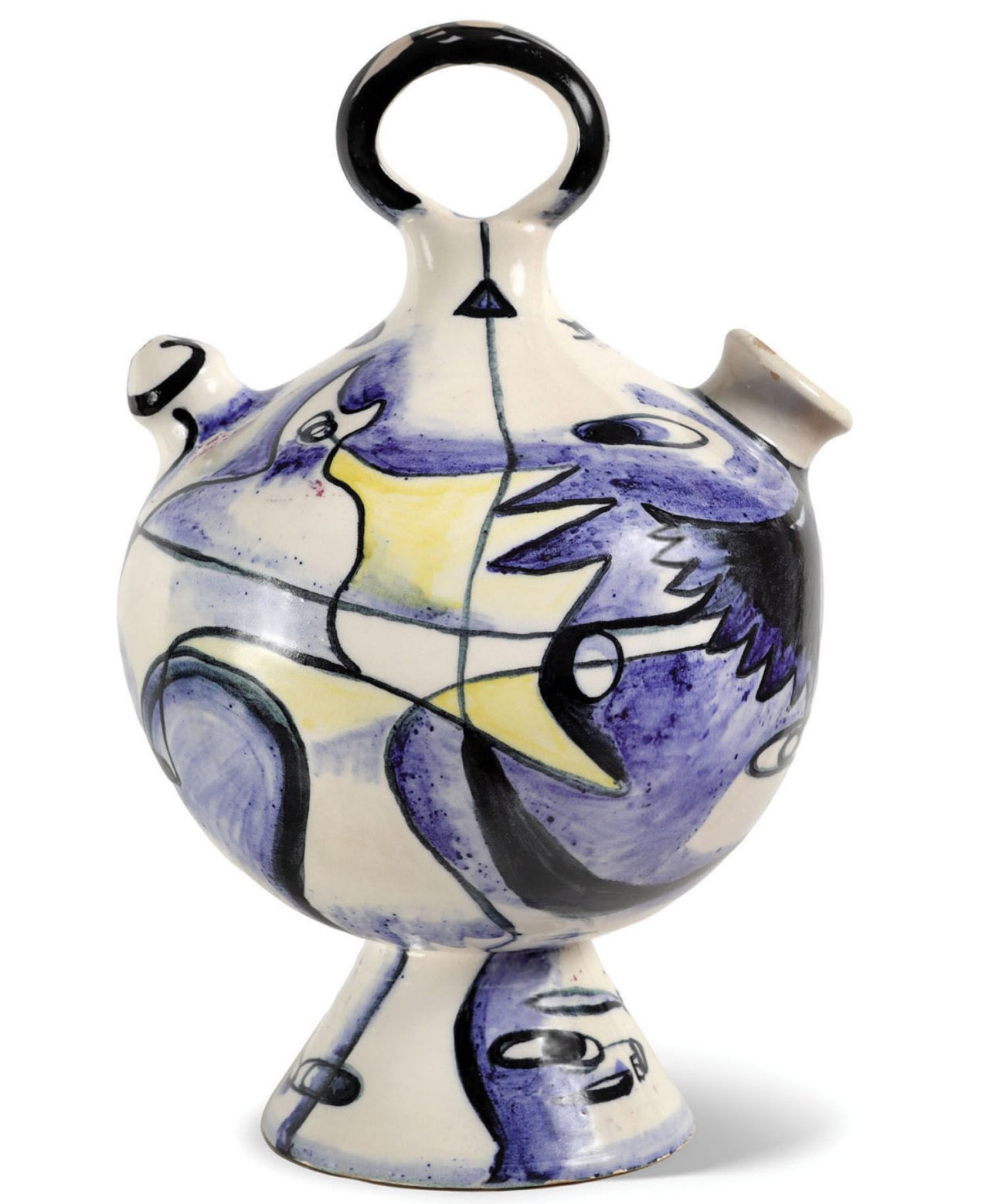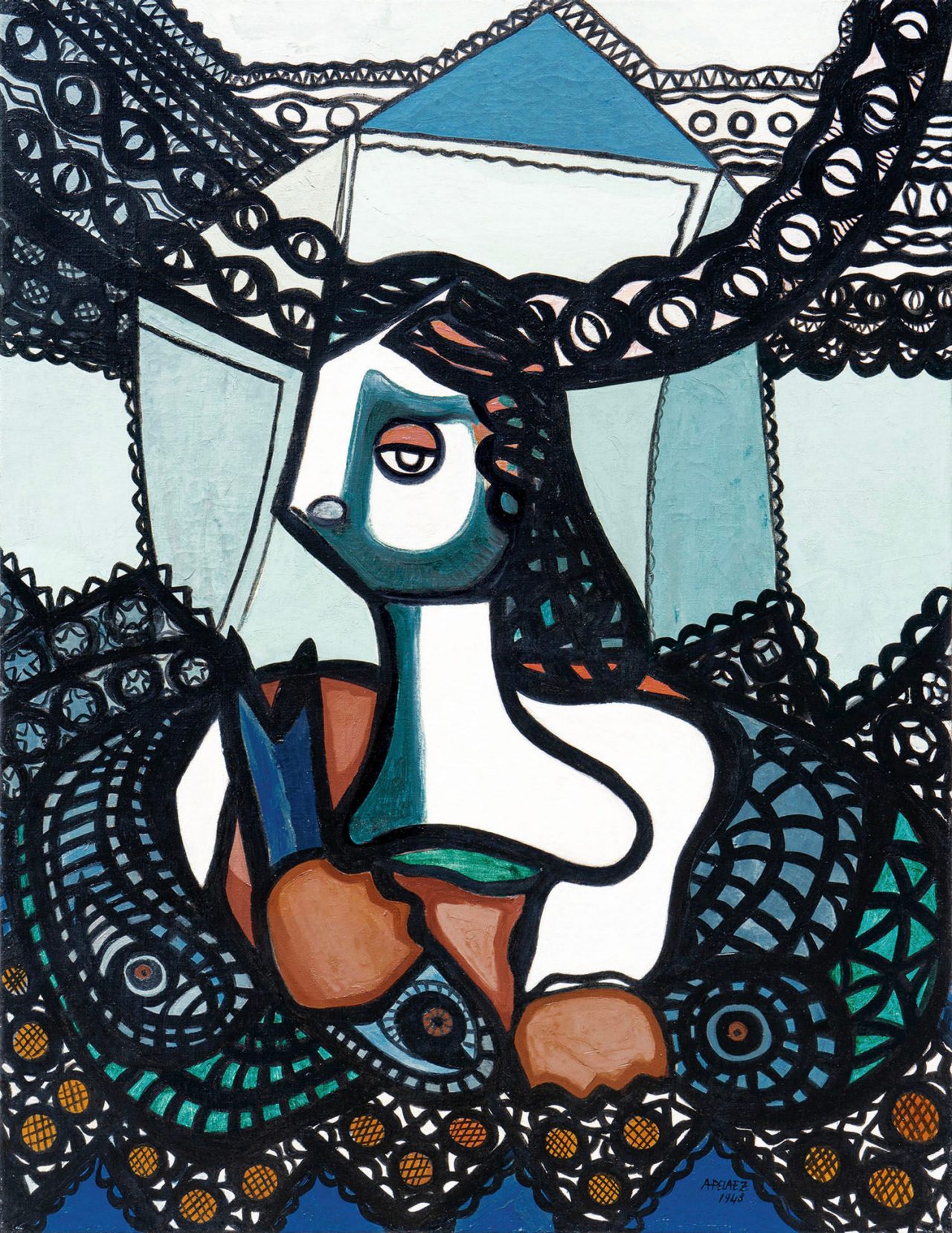Women ceramicists and the Cuban avant-garde
Image above: Artists | artistas: Amelia PelĂĄez (1896â1968) & Marta Arjona (1923â2006); ceramicist | ceramista: RenĂ© MartĂnez Palenzuela (1956â) Ceramic Tiles for Salesian Rosa PĂ©rez Velasco House Mural | Azulejos de cerĂĄmica para el mural de la casa Salesiana Rosa PĂ©rez Velasco, 1956/1999 ceramic tiles | azulejos de cerĂĄmica, Pan American Art Projects
An exclusive exhibition at the McMullen Museum of Art at Boston College casts a revealing light on how women played a major role in Cubaâs avant-gardemovement
The Lost Generation: Women Ceramicists and the Cuban Avant-Garde, on view in the museum's Daley Family and Monan Galleries from January 29 to June 2, examines the participants and artistic output from 1949 to 1959 of the Taller de Santiago de las Vegas, a ceramic workshop on the outskirts of Havana..
This bilingual (English-Spanish) exhibition is the first to show how these innovative works by women ceramicists influenced other artists of that period whose focus was on more established media. Until now, organizers note, Cuban avant-garde (vanguardia) design has been defined as a male-dominated movement.
The majority of the nearly 200 works on display in The Lost Generation are from a private collection, and have never before been exhibited in the United States.
âThe McMullen is pleased to present The Lost Generation, the seventh exhibition organized as part of its Hispanic Art Initiative, which ventures into the little-explored, women-dominated medium of mid-twentieth-century Cuban artistic ceramics,â said Nancy Netzer, the inaugural Robert L. and Judith T. Winston Director of the McMullen Museum and professor of art history.
âThanks to generous loans from private collectors and galleries, curator Elizabeth Thompson Goizueta [McMullen Museum adjunct curator] has assembled an outstanding selection of ceramics produced in the visionary Dr. Juan Miguel RodrĂguez de la Cruzâs Taller de Santiago de las Vegas. Thompson Goizueta has paired the ceramics with paintings and sculptures by Cubaâs second- and third-generation modernists to reveal for the first time how the avant-garde ceramicistsâ innovations exerted powerful influence on artists working in more traditional media.â

artist | artista Mariano RodrĂguez (1912â90) ceramicist | ceramista Juan Miguel RodrĂguez de la Cruz (1902â90) Water Jug with Abstract Roosters | PorrĂłn con gallos abstractos, 1952 painted ceramic | cerĂĄmica pintada, Latin Art Core
A decade of artistic experimentation primarily by little-known women ceramicists had deep reverberations both for the acceptance of ceramics as a fine art form in Cuba and for the symbiotic relationship that flourished between the ceramicists and the paintersâlargely menâwho visited the Taller to learn the craft. The painters in turn applied new techniques and methodologies to their two-dimensional production, which is now regarded as synonymous with the Cuban avant-garde.
Featuring nearly 150 vases, mugs, water jugs, murals, and plates drawn from premier private and gallery collections, The Lost Generation displays for the first time many of the Tallerâs finest ceramics in conversation with dozens of paintings and sculptures by Amelia PelĂĄez, RenĂ© Portocarrero, Wifredo Lam, Luis MartĂnez Pedro, Mariano RodrĂguez, and others. In addition to the ceramics, thirty-seven paintings, three sculptures, and archival materials from the ceramic workshop will be on display.
At the helm of the Taller was physician Juan Miguel RodrĂguez de la Cruz, who formed and fired the ceramics and hired mainly women, many of whom were trained at the prestigious Academia San Alejandro and other fine arts schools, to decorate the wares. These ceramicists created their own styles, establishing an artistic movement that garnered national and international recognition.
Among the artists whose work is included are key ceramicists at the Taller; they, along with RodrĂguez de la Cruz, welcomed the participation of renowned modernist painters and sculptors, whose pieces are also on display. Represented in the exhibition are also those who worked in the milieu of the Taller. They are: Marta Arjona, Elia Rosa FernĂĄndez de MendĂa, Mirta GarcĂa Buch, Aleida GonzĂĄlez, Rosa JimĂ©nez, MarĂa Elena JubrĂas, MarĂa Pepa Lamarque, Amelia PelĂĄez, Rebeca RobĂ©s MassĂ©s, Ofelia Sam, Wifredo Arcay, AgustĂn CĂĄrdenas, Viredo Espinosa, Maximiliano GonzĂĄlez OlazĂĄbal, Julio Herrera Zapata, Wifredo Lam, RenĂ© MartĂnez Palenzuela, Luis MartĂnez Pedro, JosĂ© MarĂa Mijares, RaĂșl MiliĂĄn, RenĂ© Portocarrero, Mariano RodrĂguez, Juan Miguel RodrĂguez de la Cruz, and Leopoldo Romañach.
âI am honored to be introducing in this exhibition a whole generation of unknown or underrepresented Cuban women ceramic artists,â said curator Elizabeth Thompson Goizueta, a former Boston College faculty member in Hispanic studies. âTheir contributions are not limited to Cuba alone but rather are emblematic of the greater international mid-century modernist movement.
âUntil now, Cuban avant-garde design has been exclusively defined as a male-dominated movement. In the twenty-first century, we are finally recognizing the complexity and fullness of our societies and their participants,â she said.
The trajectory of ceramics following the Cuban Revolution of 1959 is also explored in the exhibition. According to organizers, many of those who worked at the Taller went on to found their own independent workshops, furthering the commercialization, and acceptance, of fine art modernist ceramics on the island.
Lenders to the exhibition include a prominent private collection, Cernuda Arte, Latin Art Core, Pan American Art Projects, Silvia and Emilio M. Ortiz, Isaac and Betty Rudman, and several anonymous collectors.

Amelia PelĂĄez (1896â1968) Woman with Fish | Mujer con pez, 1948 oil on canvas | Ăłleo sobre lienzo, Col. Cernuda Arte
The Lost Generation is accompanied by a bilingual catalogue edited by Goizueta that illustrates each work in the exhibition. With contributions from Roberto Cobas Amate, curator of Cuban avant-garde art and the Wifredo Lam collection at the Museo Nacional de Bellas Artes in Havana; Alejandro Anreus, a professor of art history and Latin American/Latinx studies, formerly at William Paterson University; Thompson Goizueta; and Carol Damian, an art historian and curator formerly at Florida International University, the volume explores the origins of late nineteenth- and early twentieth-century art in Cuba, the protagonists of the first two generations of the vanguardia, the importance for Cuban modernism of the women ceramicistsâ involvement in the Taller de Santiago de las Vegas, and the stylistic contributions of the women artists.
Organized by the McMullen Museum, The Lost Generation has been underwritten by Boston College with major support from the Patrons and the Hispanic Art Initiative of the McMullen Museum.
In-person and virtual programming is planned for the general public and museum members. For more information, and to sign up for events that require advance registration, visit the .
